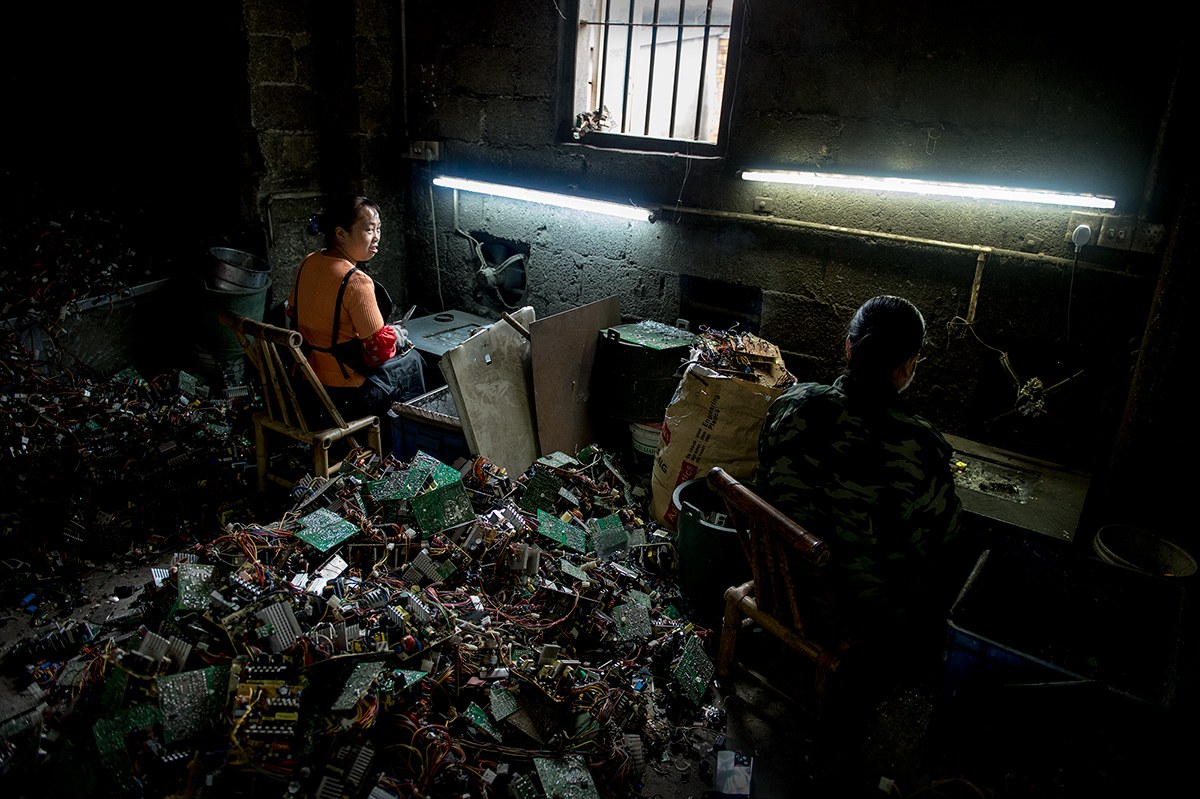Photo by Kai Loffelbein. Women melt circuit boards in Guiyu, China
The beloved electronic devices that many think they cannot live without are produced and discarded at great environmental and health costs, mostly borne by poor people in developing countries. Michael Hardy’s article in Wired Magazine, “The Hellish E-Waste Graveyards Where Computers Are Mined for Metal,” features disturbing photos by Kai Loffelbein in Ghana, China and India, where many of our devices go after we’re done with them.
Excerpts from the article:
“Each year the planet generates some 50 million tons of electronic waste, ranging from batteries to mobile phones to light-up children’s toys. And although such devices may have been discarded, they’re not without value—the United Nations recently estimated the total worth of all that e-waste at $55 billion, thanks largely to the trace amounts of gold, silver, and other metals they contain. The problem, though, is getting them out.”
“Löffelbein first traveled to Accra, the capital of Ghana and home to Agbogbloshie, the world’s largest e-dump, where about 700 people—including children as young as 12—make a living by scavenging for electronics. “It was described to me as the gates of hell,” the photographer recalls. “And that’s what it was.” He found some of the youngest children tossing copper cables into fires to burn off their rubber coating, sending plumes of noxious black smoke into the already polluted air.”
Loffelbein’s advice? “The only real solution to the rising tide of e-waste may be for consumers to give up their mania for the new new thing. “There is the iPhone 8, then there will be the iPhone 9,” Löffelbein says. “Even if our laptop has been working for six or seven years, we think it is old and we need a new one. It’s about thinking about our consumption, and how we can stop increasing it.”
******************
This was written and posted on a computer that, though recycled and clunky (very far from the latest “new thing”), will still likely end up, eventually, on the other side of the planet being taken apart by impoverished people and mined for metals at great risk to their health and safety.

